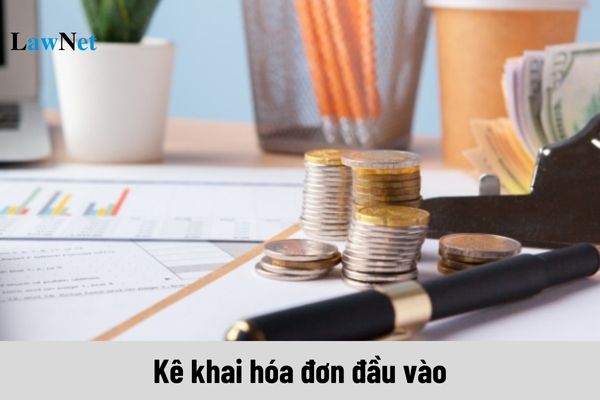Vietnam: When shall enterprises be imposed a fine for failing to declare input VAT invoices?
Vietnam: When shall enterprises be imposed a fine for failing to declare input VAT invoices?
Based on Article 15 of Circular 219/2013/TT-BTC (amended and supplemented by Circular 26/2015/TT-BTC and Circular 173/2016/TT-BTC), the regulation is as follows:
Conditions for Deducting Input Value-Added Tax
1. Have legitimate value-added tax invoices for the goods and services purchased or a document for paying value-added tax at the import stage or a document for paying value-added tax on behalf of foreign entities according to the guidance of the Ministry of Finance applicable to foreign organizations without legal status in Vietnam and foreign individuals doing business or having income arising in Vietnam.
2. Have non-cash payment documents for goods and services purchased (including imported goods) from twenty million dong or more, except for cases where the value of imported goods and services is under twenty million dong per instance, or goods and services are purchased per invoice below twenty million dong, including VAT, and cases where the firm imports goods as gifts from foreign organizations or individuals.
Non-cash payment documents include bank payment documents and other non-cash payment documents guided in Clauses 3 and 4 of this Article.
3. Bank payment documents mean documents proving that the payment is transferred from the buyer's account to the seller's account opened at payment service organizations according to current legal payment forms such as checks, payment orders, payment mandates, collection mandates, bank cards, credit cards, phone SIM cards (e-wallets), and other payment forms as stipulated (including the case where the buyer pays from the buyer's account to the seller's account under the name of the private business owner or the buyer pays from the buyer's account under the name of the private business owner to the seller's account).
....
Therefore, there is currently no regulation on penalizing such behavior, as the declaration of input invoices is a business right. Suppose a business fails to declare; it simply will not be entitled to deduct the value-added tax.

Vietnam: When shall enterprises be imposed a fine for failing to declare input VAT invoices? (Image from the Internet)
What are cases of non-refundable input VAT on damage goods in Vietnam?
Based on Clause 1, Article 14 of Circular 219/2013/TT-BTC, the regulation is as follows:
Principles of Input VAT Deduction
1. Input VAT of goods and services used for producing and trading goods and services subject to VAT is fully deductible, including non-compensable input VAT of VAT-liable goods that suffer losses.
Cases of non-compensable loss that allow for input VAT deduction include natural disasters, fires, instances where losses are not covered by insurance, goods losing quality, and expired goods needing destruction. Businesses must have complete records and documents proving non-compensable loss cases for tax deduction.
In cases where goods face natural shrinkage due to physical chemical properties during transport or pumping, like fuel, they may declare and deduct input VAT on the actual natural shrinkage quantity not exceeding the regulated shrinkage norm. Input VAT on quantities exceeding the shrinkage norm is not deductible or refundable.
Input VAT on goods and services forming fixed assets like canteens, break rooms, locker rooms, parking lots, restrooms, and water tanks serving workers in production and business areas, and accommodation and health stations for workers in industrial zones is fully deductible.
In cases where accommodation for workers in industrial zones is rented in accordance with legal standards on design and rental price for worker housing in industrial zones, the VAT on rental payments in such instances is deductible as per regulations. For businesses constructing or purchasing worker housing outside of industrial zones following legal standards for worker housing design, the VAT on such construction or purchase for workers is fully deductible.
In cases where businesses have foreign experts temporarily in Vietnam holding management positions in Vietnam and receiving salaries in Vietnam per employment contracts signed with businesses in Vietnam, the business is not allowed to deduct VAT on housing rental payments for these foreign experts.
If the foreign experts remain employees of the overseas company, directed by the overseas company, paid by the overseas company, and enjoying its policies while on assignment in Vietnam, with an agreement between the overseas company and the local business that includes housing expenses for the experts in Vietnam, the VAT on housing rental payments incurred by the Vietnamese company for accommodating the foreign experts in Vietnam is deductible.
Thus, under the current regulation, non-compensable loss cases eligible for input VAT deduction include natural disasters, fires, instances where losses are not covered by insurance, goods losing quality, and expired goods needing destruction.
What are current conditions for deduction and refund of input VAT on domestic exports in Vietnam?
According to Clause 2, Article 17 of Circular 219/2013/TT-BTC, regarding conditions for deduction and refund of input VAT on certain types of goods considered as exports, it specifies:
- Goods processed continuously under the commercial law on international commercial activities and agency activities for purchase, sale, and processing with foreign entities.
- domestic exports as per legal regulations:
+ Goods sale or processing contracts indicating delivery within Vietnam;
+ Completed customs declarations for onsite export-import goods;
+ VAT invoices or export invoices clearly stating the foreign buyer's name, the receiving enterprise's name, and the delivery location in Vietnam;
+ Goods sold to foreign merchants but delivered within Vietnam must be paid for via bank transfer in freely convertible foreign currency. The bank payment documents are as guided in Clause 3, Article 16 of this Circular. If the onsite importer is authorized by the foreign party to pay the onsite exporter, the payment currency follows the currency regulations.
+ Onsite export goods by foreign-invested enterprises must align with investment certificate regulations.

